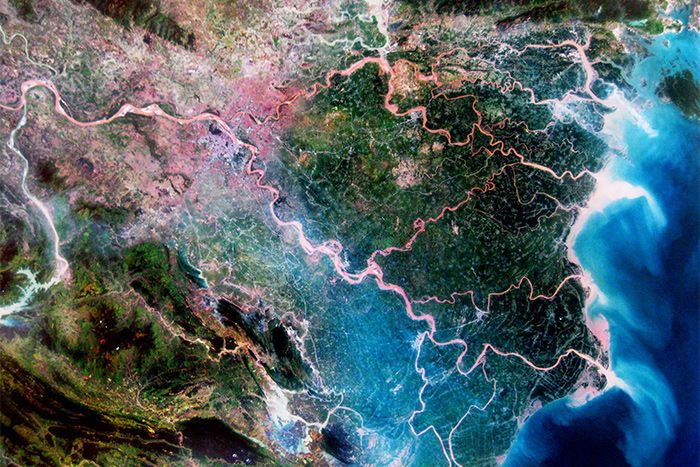As Australia knows firsthand, the Nguyen surname is the most common among Vietnamese. But how does it stack up against others like Trấn, Lê and Phạm? One Vietnam put together a nifty infographic showing the distribution of Vietnamese last names and provided a bit of context as well:

The domination of the surname Nguyen is easily explained as it was Vietnam’s last dynastic family who were in power from 1802 (when Emporer Gia Long defeated the Tay Son Dynasty) to 1945 (when Bao Dai abdicated the throne). Like the mass religious conversions of Europe, many took the Nguyen name to avoid persecution.
A few last names have slight variations on account of their Chinese roots. Huynh and Hoang and Vu and Vo each share the same root but have taken different evolutionary paths due to geography:
“It is similar to how Chan and Chen are spelt differently depending on where the person is from in China. Try saying Huynh and Hoang out loud; you can see how they might have evolved from the same name.”
On a similar note, there’s an active thread on Reddit where users match Vietnamese surnames to the corresponding Chinese characters. Here are some examples:
Nguyen = Ruan (阮)
Vuong = Wang (王)
Giang = Jiang (江)
Pham = Fan (范)
Huynh = Hoang (黃)
Ly = Li or Lee e.g. Bruce Lee (李)
Dinh = Ding (丁)
Van = Wen (文)
Hoa = Hua (花)
Lam = Lin (林)
Of course, these are direct translations. Nguyens are not necessarily related to Ruans (though they certainly could be) but rather, they share the same simplified Chinese characters.
[One Vietnam // Image via Khánh Hmoong]














